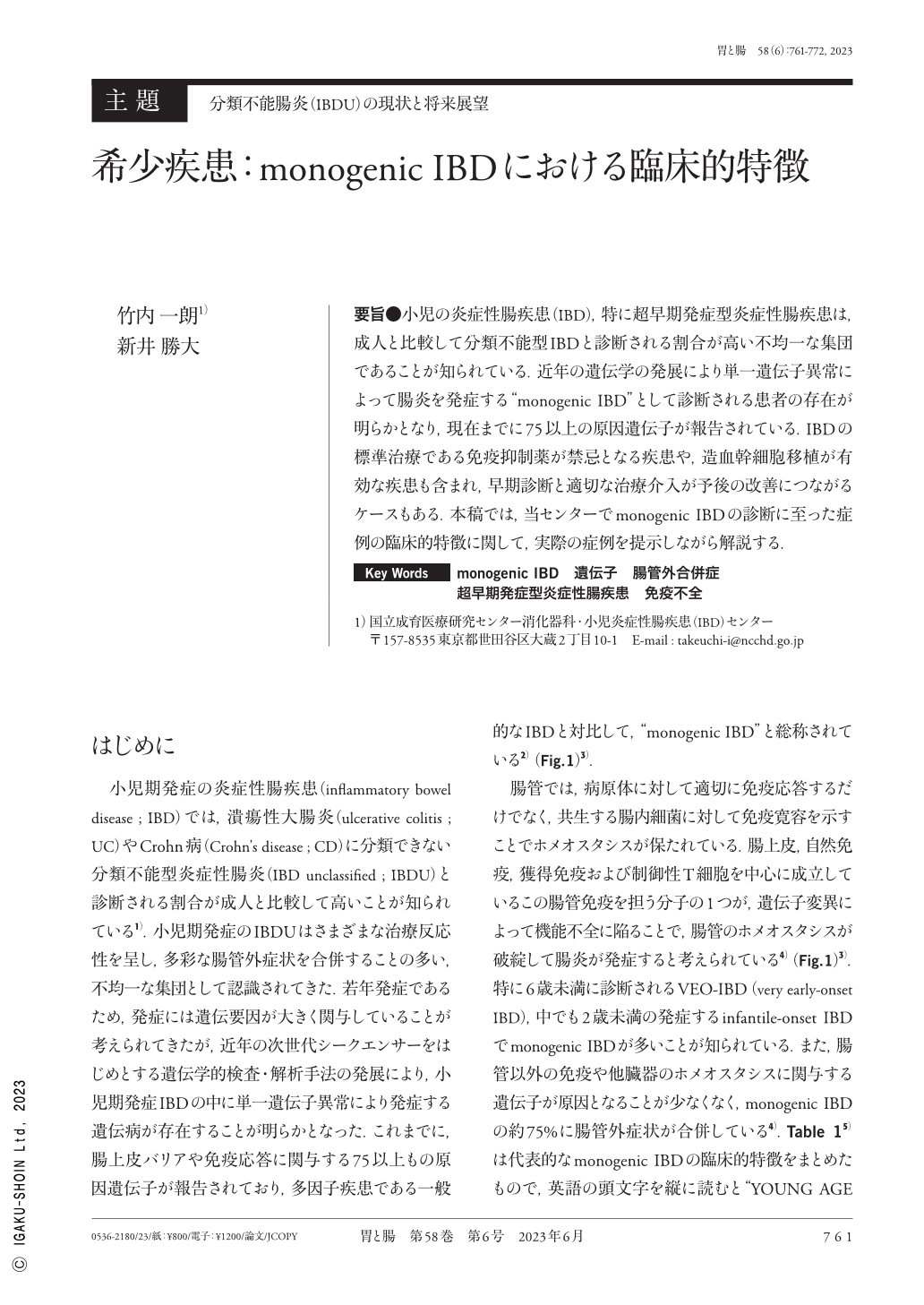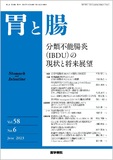Japanese
English
- 有料閲覧
- Abstract 文献概要
- 1ページ目 Look Inside
- 参考文献 Reference
- サイト内被引用 Cited by
要旨●小児の炎症性腸疾患(IBD),特に超早期発症型炎症性腸疾患は,成人と比較して分類不能型IBDと診断される割合が高い不均一な集団であることが知られている.近年の遺伝学の発展により単一遺伝子異常によって腸炎を発症する“monogenic IBD”として診断される患者の存在が明らかとなり,現在までに75以上の原因遺伝子が報告されている.IBDの標準治療である免疫抑制薬が禁忌となる疾患や,造血幹細胞移植が有効な疾患も含まれ,早期診断と適切な治療介入が予後の改善につながるケースもある.本稿では,当センターでmonogenic IBDの診断に至った症例の臨床的特徴に関して,実際の症例を提示しながら解説する.
Children with IBD(inflammatory bowel disease), particularly those with very early onset IBD, were considered a heterogeneous population with a higher percentage of IBDU(IBD unclassified)than adults. Recent genetic advances have revealed more than 75 causative genes of hereditary disorders contributing to enterocolitis known as “monogenic IBD” in IBDU. Because immunosuppressive therapy can cause severe infection, hematopoietic stem cell transplantation may be the treatment of choice for some monogenic IBD ; therefore, early diagnosis and proper treatment can improve the prognosis. This chapter describes the clinical characteristics of monogenic IBD and discusses the cases encountered at our center.

Copyright © 2023, Igaku-Shoin Ltd. All rights reserved.


